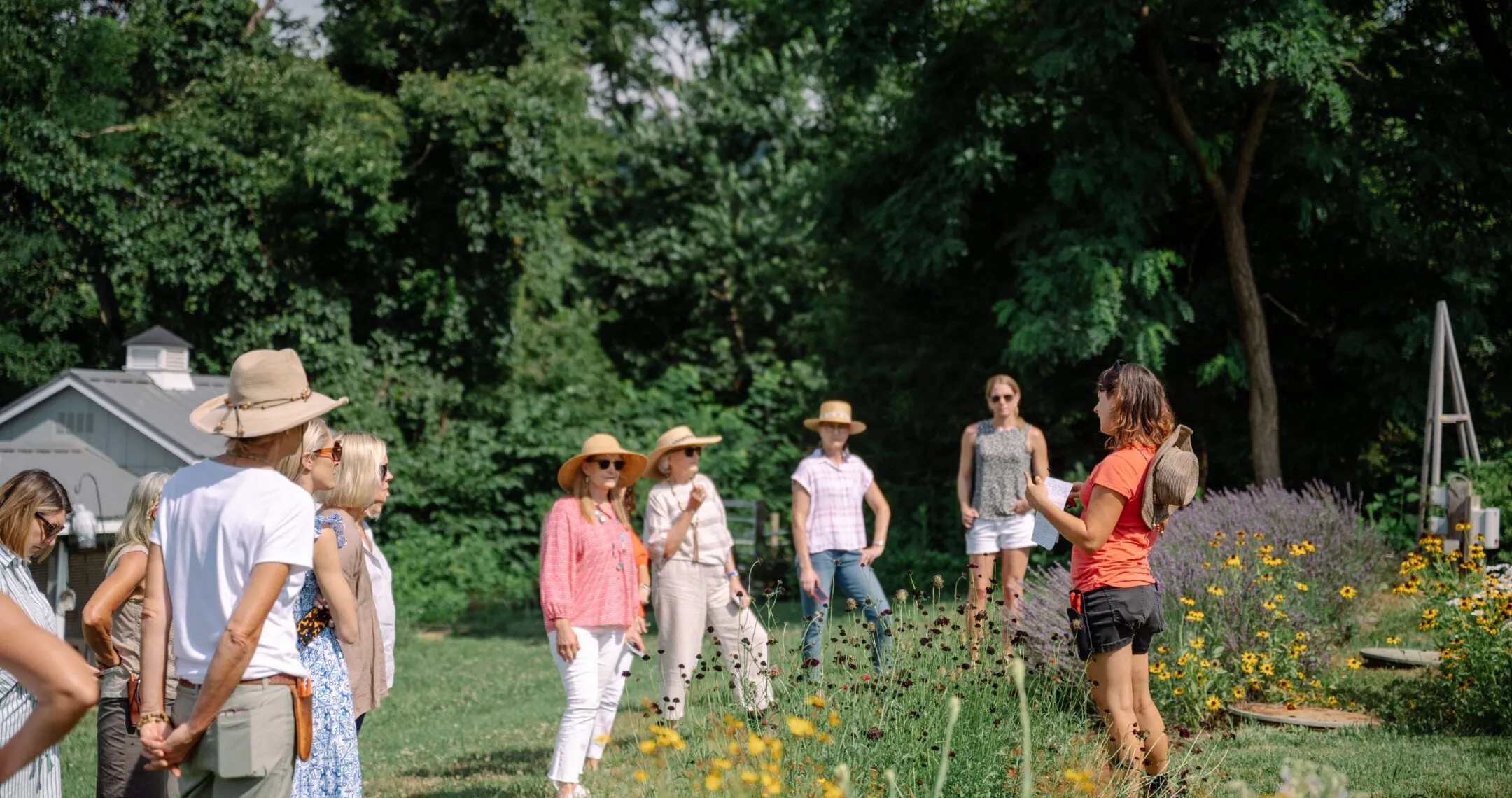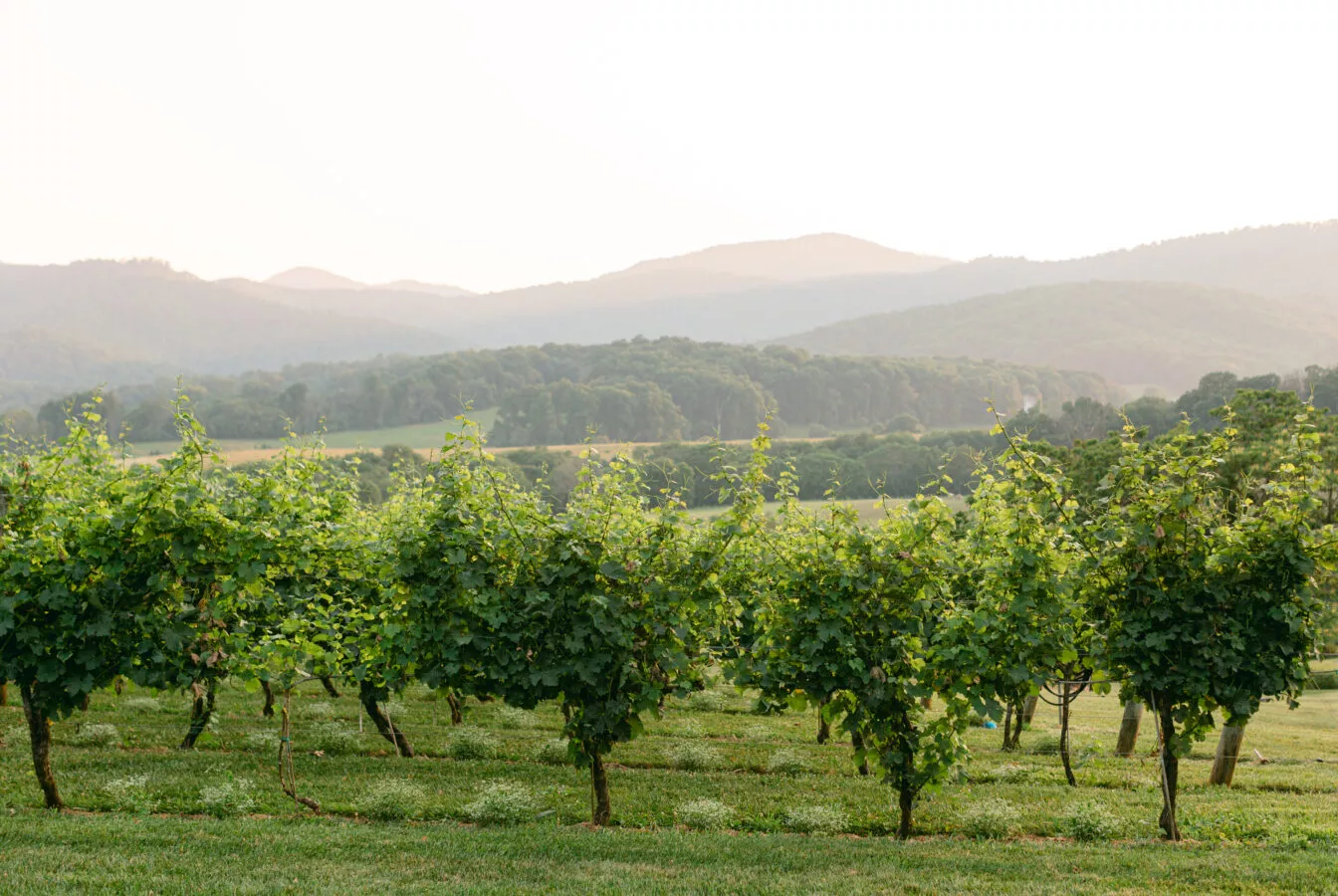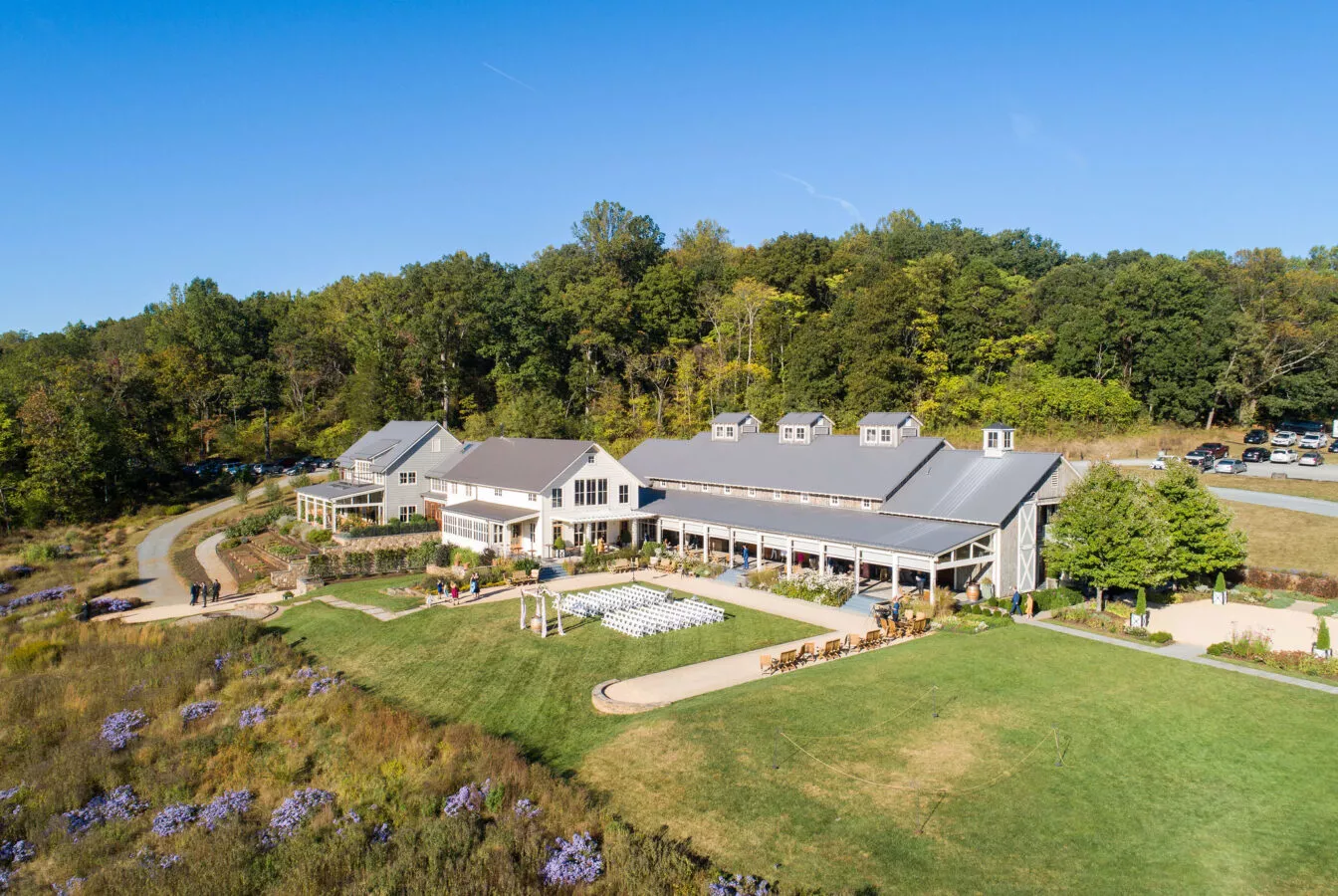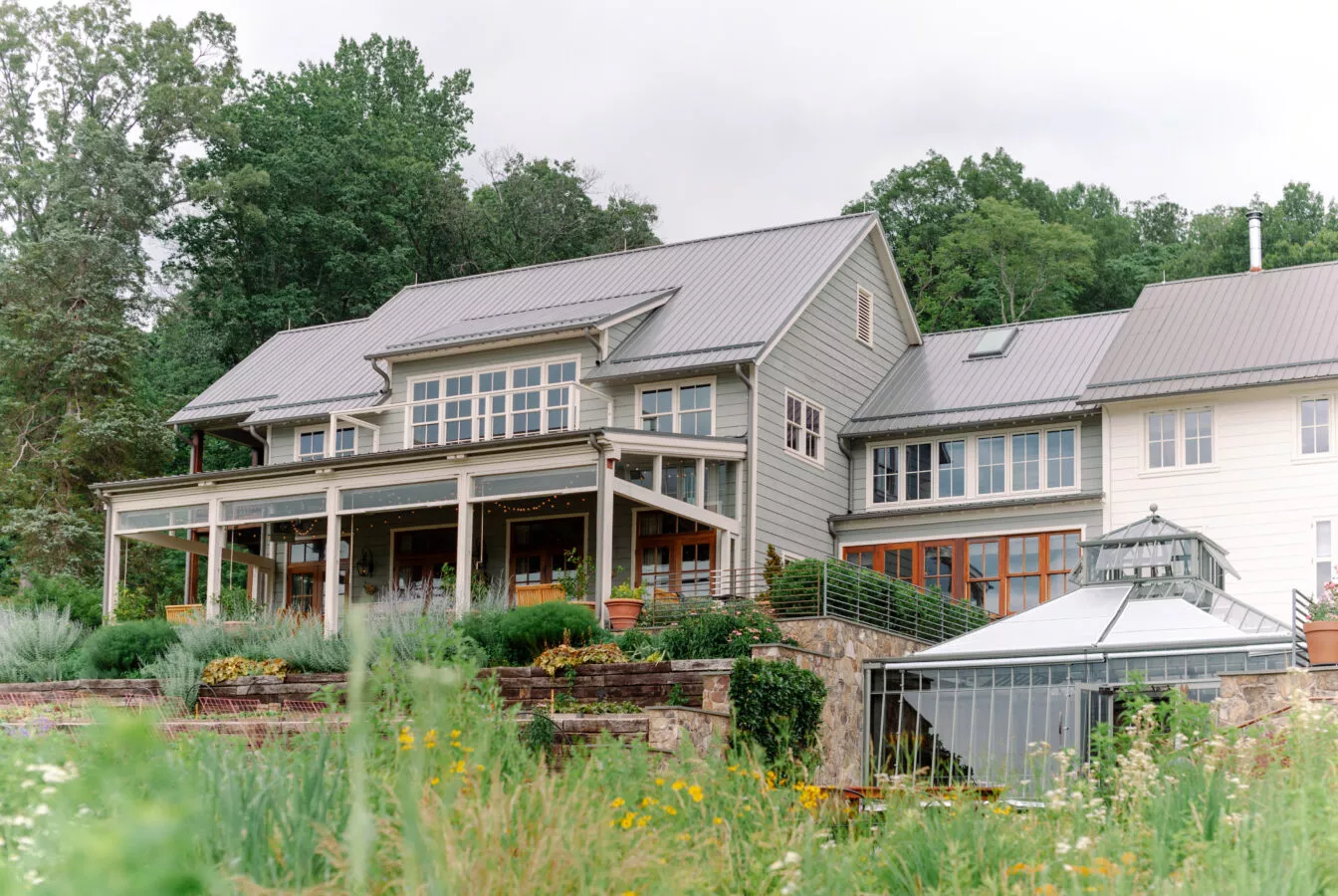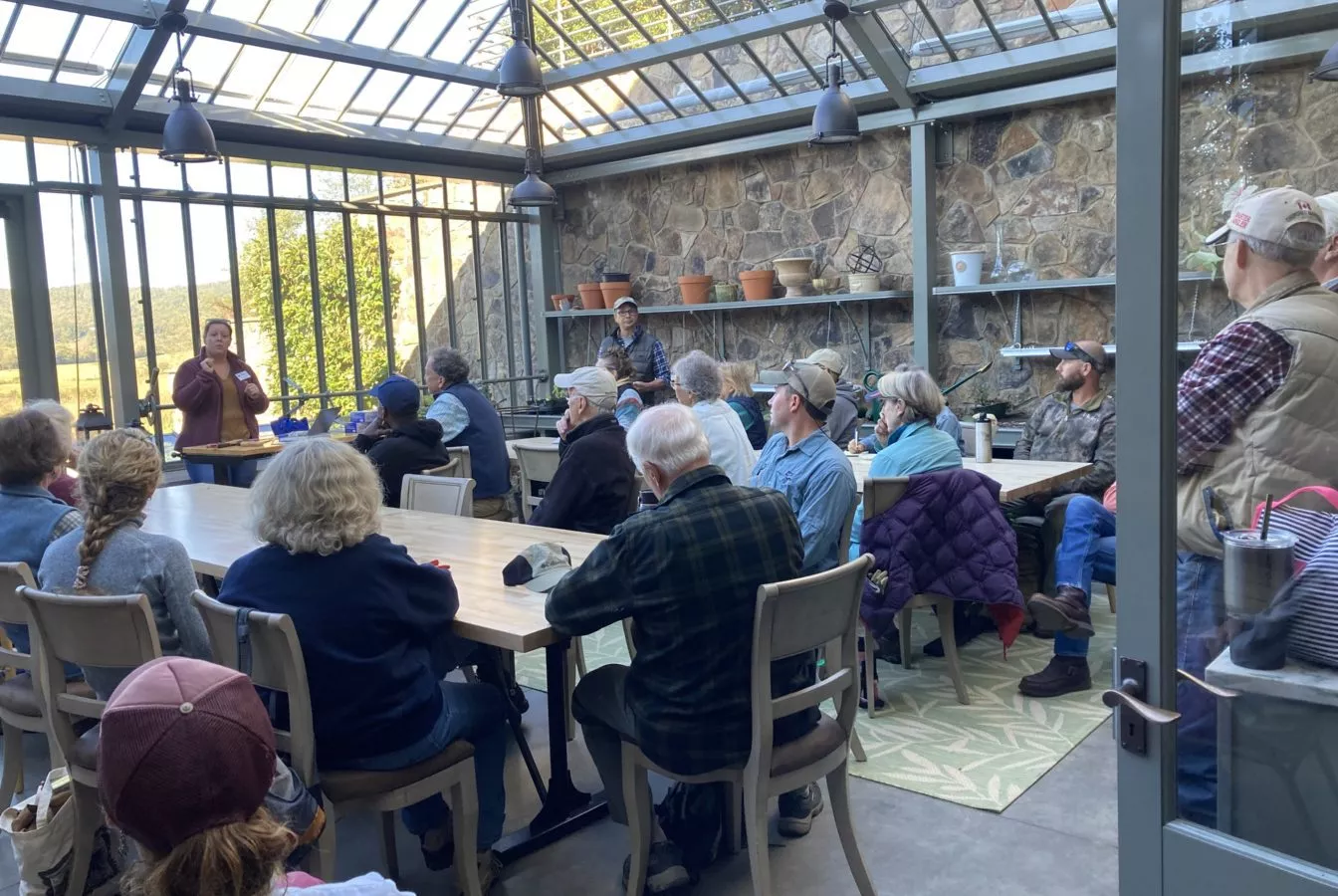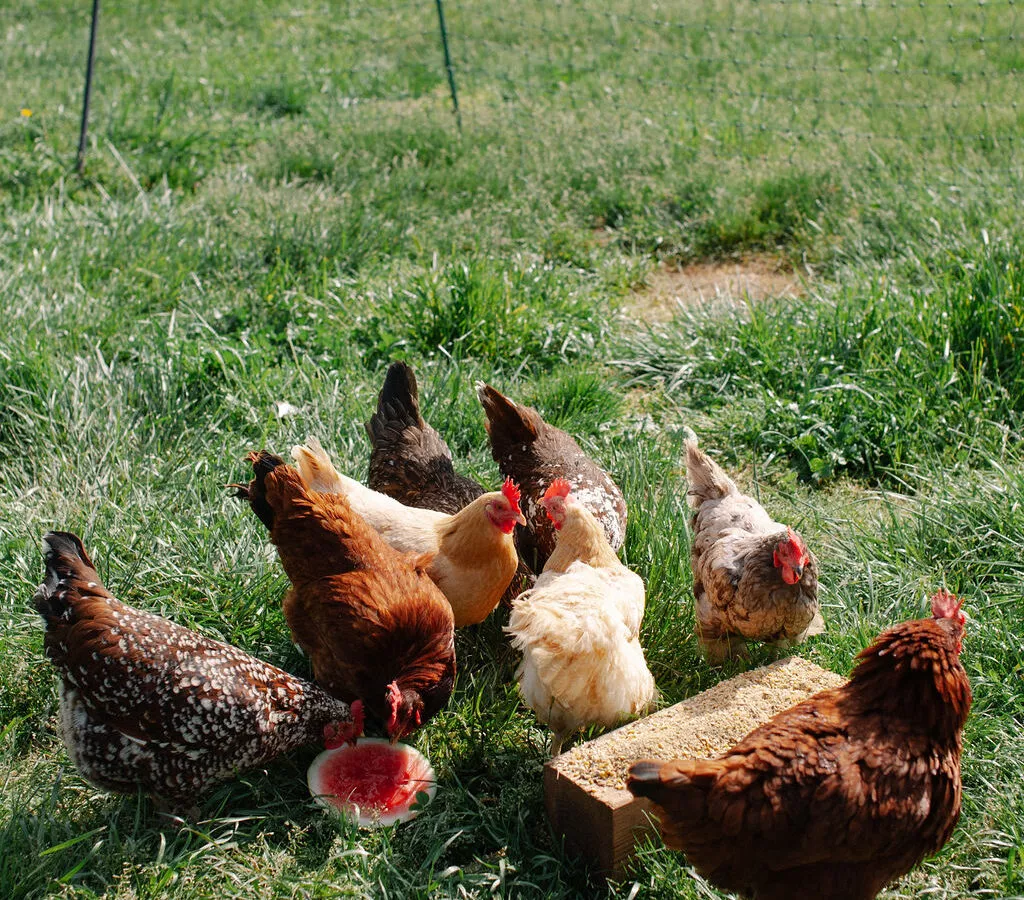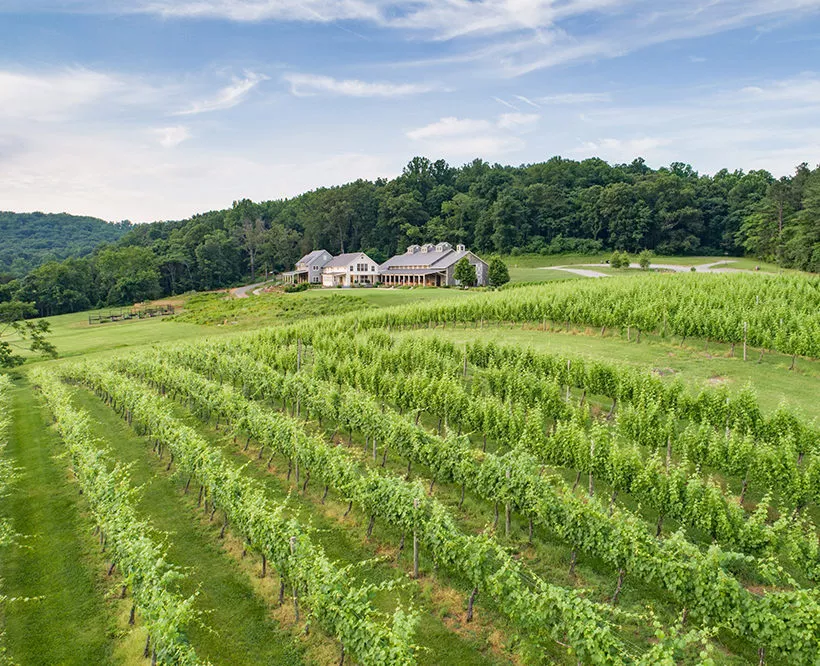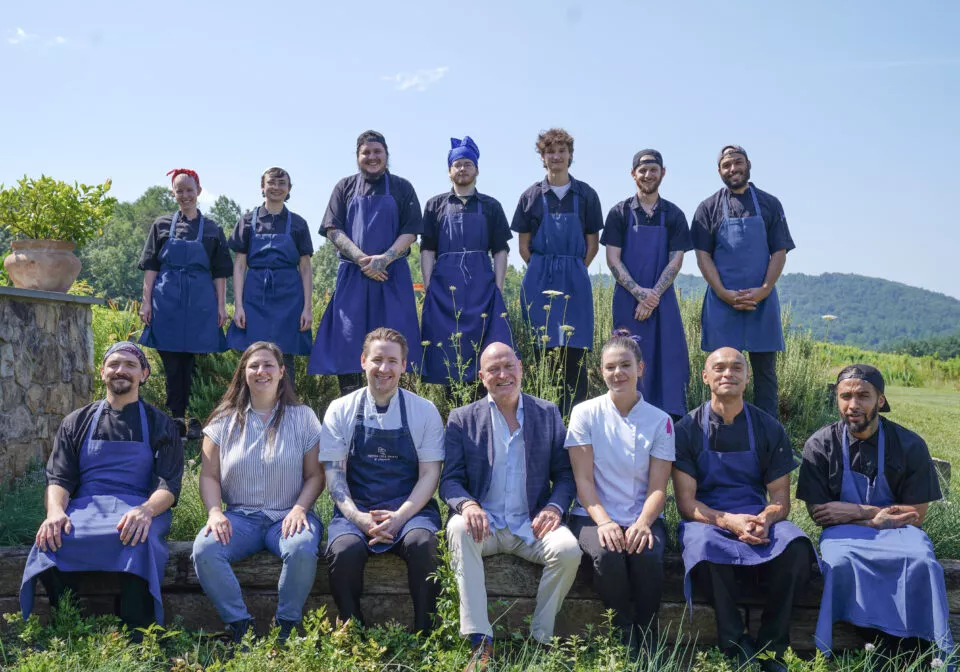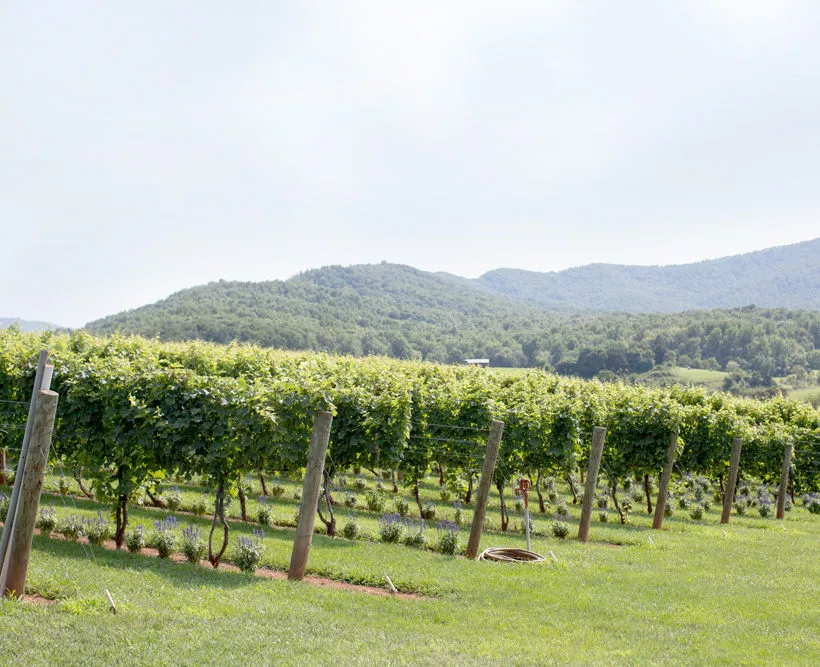Sustainability Practices on the Hill
Being green has never been more important.
In the Vines
The process of farming from its very nature leaches minerals and nutrients from soil and destroys it over time. To help reverse this process vineyards need to apply things such as potash, boron, potassium, nitrogen, etc. to their soil after about 10 years of farming.

To minimize pesticide use, we use a targeted approach by flooding the vineyards with a specific pheromone that disrupts the reproductive cycle of certain pests—providing an effective, eco-friendly alternative to harsher chemicals.
At Pippin Hill, we also use long-lasting, 10-year-rated netting to protect our vines. This reduces the need for single-use plastic bird netting, significantly cutting down on waste each year.
Head Gardener Celina DeBrito and Production Manager Brooks Hoover are committed to maintaining a healthy ecosystem on the property. One of their key initiatives has been addressing the presence of invasive species, such as the spotted lanternfly. Recognizing its preference for the invasive tree of heaven, we’ve proactively removed many of these trees to protect and enhance our vineyard environment.
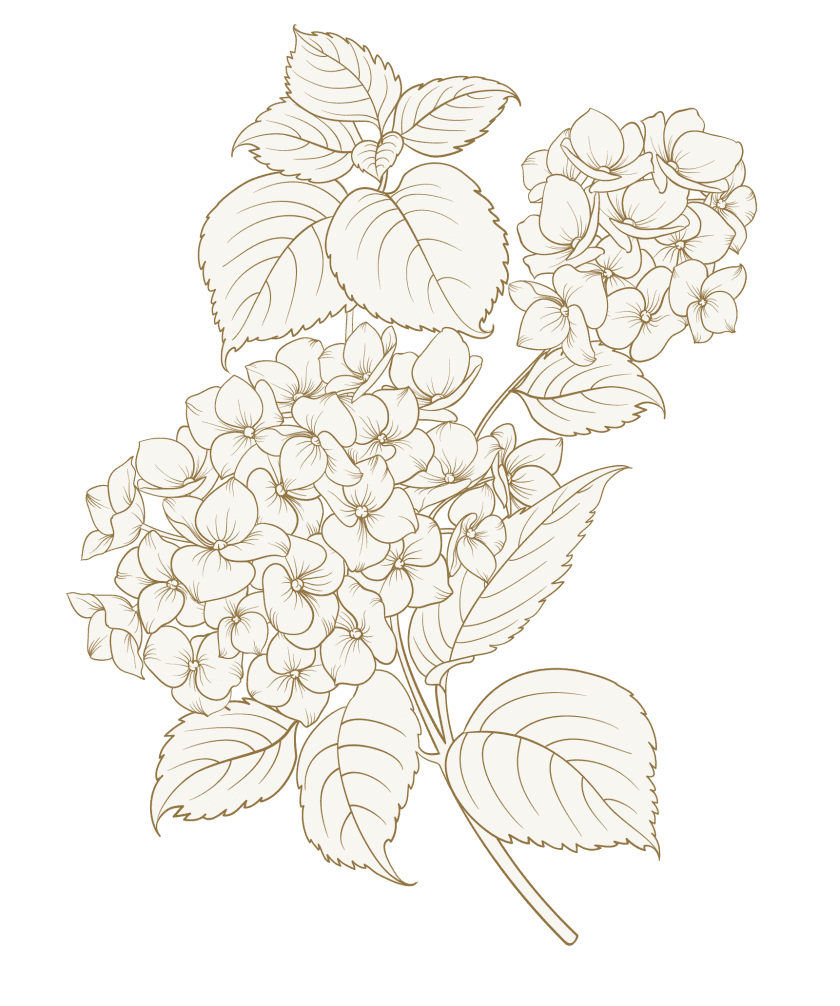
Geothermal
A geothermal system was installed in 2010 to help with cooling and heating the Tasting Room & Granary.
A second and separate geothermal system was installed in 2022 to cool the Greenhouse. Vertical wells were drilled 425 feet to reach a temperature of a consistent 53 degrees. Thus this helps cooling in the summertime when it is hot and humid and heating in the winter time when it is below 50 degrees outside.
Rain Runoff
We have three 2500-gallon cistern tanks to collect rainwater from the roof of the Tasting Room & Granary and two 1500-gallon cistern tanks by the gardens to collect rainwater from the Reserve Room & Greenhouse. These tanks feed our recirculating fountains off the veranda, feed the irrigation system on the lawns, as well as help water new plantings in the gardens.

Wildflower Fields
We converted a 7-acre hayfield to a wildflower meadow in 2021. As summer turns to autumn, we have white, pink, and purple cosmos in full bloom and yellow coreopsis. This biodiverse meadow encourages a stronger ecosystem and brings back native bugs, birds, and other wildlife to the area. It is also a wonderful pollinating area for our honey bees!
Spotted Lanternfly Prevention
Pippin Hill is proactive in controlling the Spotted

Composting
Composting enriches soil, helping retain moisture, and suppress plant diseases and pests. It also reduces the need for chemical fertilizers as well as encourages the production of beneficial bacteria and fungi that break down organic matter to create humus, a rich nutrient-filled material. We compost our chicken litter & vegetation from the kitchen and gardens.
